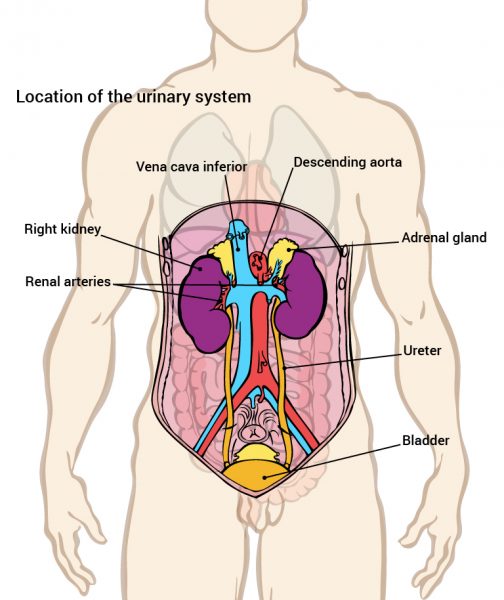The kidneys are excretory organs. This means that they are responsible for the separation and excretion of various waste products of the body. of the kidney excretes excess water, salt excess and waste materials, usually nitrogen waste (as a result of the body’s metabolism of amino acids). These excretion products are filtered from the blood as urine. Every day about 200 liters of blood are filtered through the kidneys. Only a small proportion is excreted as urine.
The kidney is also a hormone-producing organ and secretes renin (which indirectly regulates blood pressure) and erythropoietin,which regulates the production of red blood cells in the bone marrow). In addition the kidneys convert Vitamin D into Vitamin D3 – the active form of the vitamin, which increases calcium absorption in the body .
Learning Outcomes
After studying the chapter of the kidneys, should be able to:
- describe the main functions of the kidney
- explain the location and structure of the kidneys
- outline the structure and blood supply of the nephrons
- describe the glomerulus and the juxtaglomerular apparatus construction
- explain glomerular filtration and glomerular filtration rate (GFR) and its regulation
- explain nephron tubular reabsorption and secretion, and their hormonal regulation
- explain how the kidneys produce both dilute and concentrated urine
- describe the location and structure of the ureter, bladder and urethra
- describe the regulation of bladder emptying (micturition)




